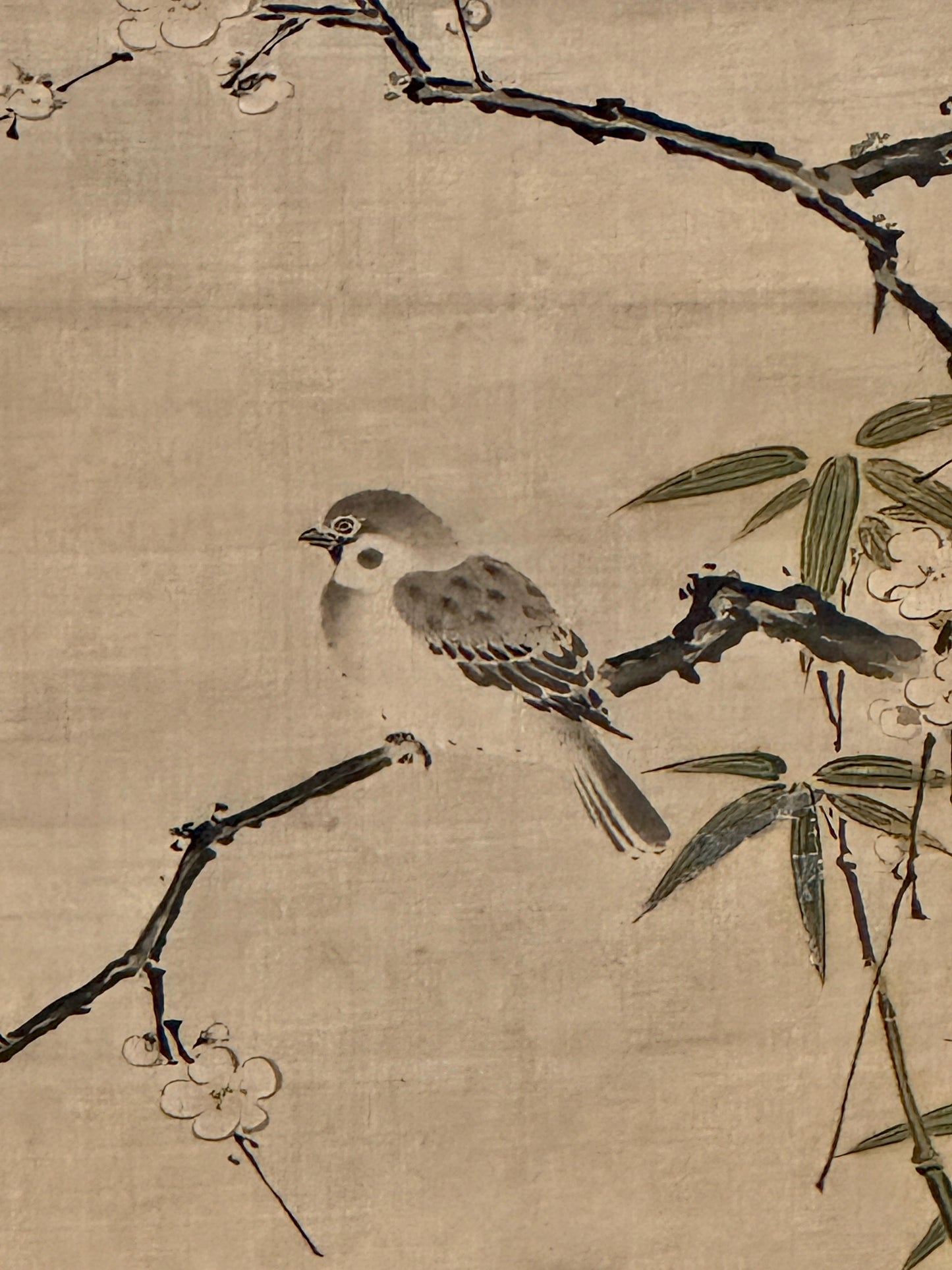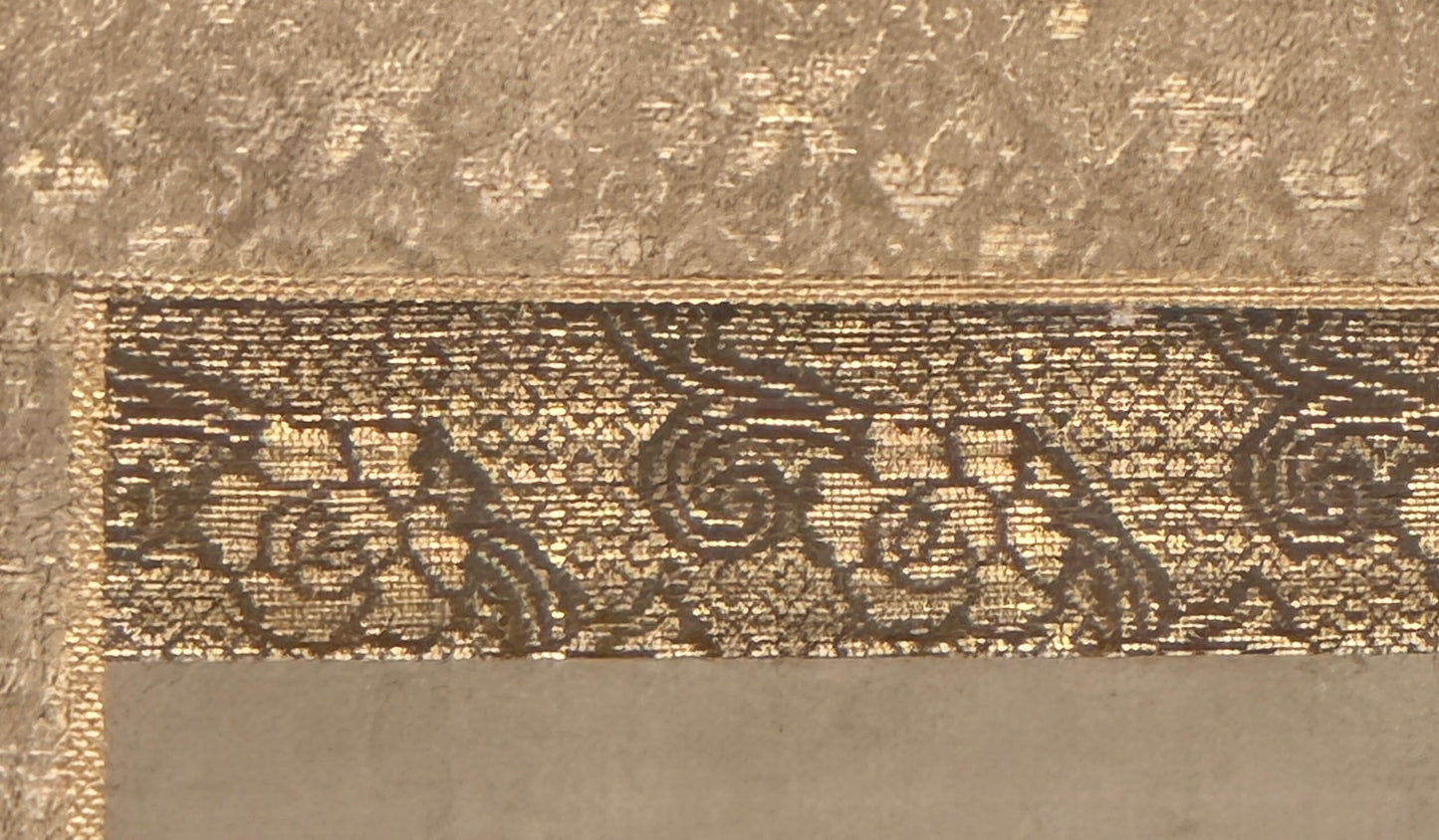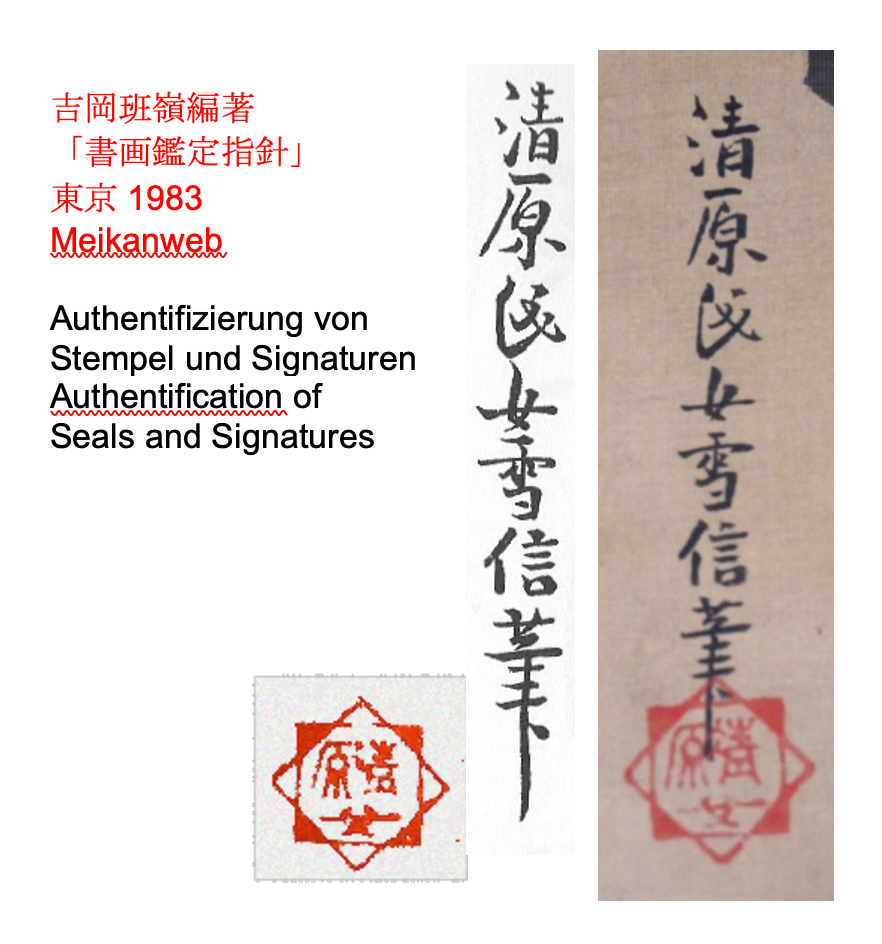Guignard Kyoto Collection
Sparrow on plum blossom branch | Kiyohara Yukinobu 清原雪信 | 1643-1682
Sparrow on plum blossom branch | Kiyohara Yukinobu 清原雪信 | 1643-1682
Couldn't load pickup availability
Kiyohara Yukinobu comes from a very illustrious family and is probably the most famous painter in Japanese art history. Her name Yukinobu does not give away her gender, but she signs her name Kiyohara清原(her husband's name:氏) with the character for "woman"女, and only then comes her first name Yukinobu雪信. Yukinobu was the daughter of Kusumi Morikage, a headstrong student of the great master Kanō Tanyū, and her mother was the niece of this same master. It was probably these very special artist family circumstances that allowed the young woman to lead a life as a professional painter.
Painting is primarily a male domain in Japan, and so it is fascinating to see whether there are any stylistically feminine aspects in this picture by a professional painter. The structure of the picture as a whole seems firmly anchored in tradition. What is special, however, is that the bird here is not a nightingale, but a sparrow. Sparrows are usually associated with bamboo. Is there a cheeky intention behind the motif design - combining the white plum blossom as the epitome of the male scholar's blossom with a simple sparrow? Well, bamboo is also present in the picture, but that really ties us into the noble symbolism of "pine-bamboo-plum blossom", where cranes are to be expected. And so it is striking that the sparrow is lovingly idealized - it was painted almost like a jewel. Does the painter want to ennoble this "lowly" bird here? Is there a connection to the theme of “woman in a man’s world” conveyed by the hybrid motif of “sparrow with plum blossom”?










